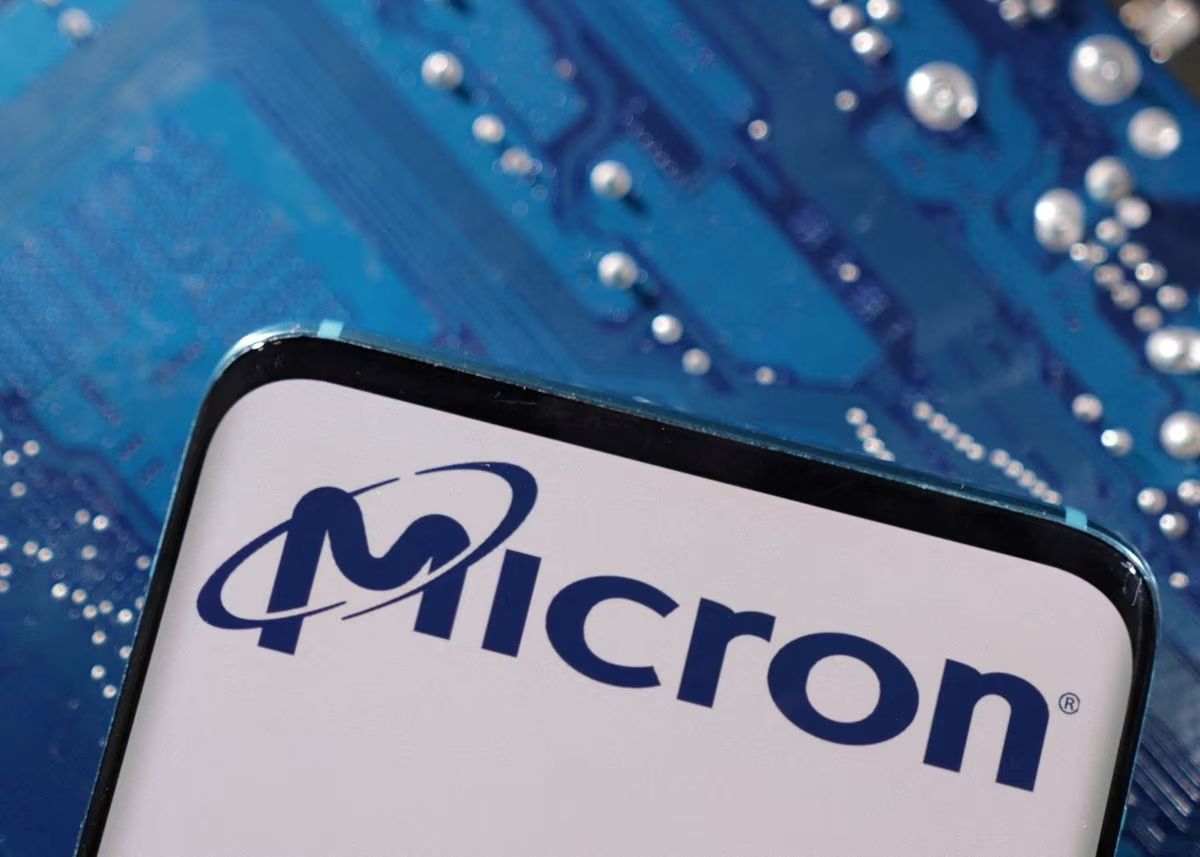Micron Shares Take Hit as China Warns on Chip Security Risks

The Lede: Micron Technology Inc. saw a decrease in its stock value following an announcement by China's cyberspace regulatory authority stating that the company did not pass a network security review and had “relatively serious” risks in products sold within the country.
What we know:
- Micron, the U.S.-based major chipmaker, has undergone a review from the Network Security Review Office a few days ago, the Cyberspace Administration of China (CAC) reported. The review identified significant potential network security issues in Micron's products, which pose a major security risk to China's critical information infrastructure supply chain and national security, the CAC said without providing more details.
- As a result, the Network Security Review Office called on operators of critical information infrastructure in China to stop buying Micron products, further ramping up tensions between Beijing and Washington.
- The U.S. Commerce Department opposed the decision, saying it is inconsistent with China’s rhetoric on open markets. The Department wants to speak with Chinese officials for further clarifications. Meanwhile, Mao Ning, spokesperson for the Chinese Ministry of Foreign Affairs said the decision is focused on “safeguarding national security.”
- Following the failure of review, Micron's stocks experienced a decline of up to 5% during the early trading session in New York, marking the largest drop in over seven weeks, Bloomberg reported. But the stock recovered slightly and was trading at $66.31 as of 12:23 p.m. on Monday, May 22.
- When CAC announced the start of review back in the beginning of April, Micron's shares experienced a 9% decline. Conversely, investors in China reacted positively to the announcement, leading to a surge in the stock prices of domestic semiconductor companies. As of now, Chinese state media said that local players could potentially benefit from CAC’s decision. According to Reuters, several companies, such as Gigadevice Semiconductors, Ingenic Semiconductor, and Shenzhen Kaifa Technology, witnessed an initial increase in their shares by 3% to 8% before reducing some of the gains.
The background: Micron Technology Inc. is a leading global company specializing in the design, development, and manufacture of memory and storage solutions. Established in 1978 and headquartered in Boise, Idaho, Micron has grown to become one of the largest semiconductor memory manufacturers in the world. The company has been actively investing in expanding its manufacturing capabilities outside China, including the construction of a new chip plant in the United States. This strategic approach aims to secure and maintain Micron's leading position in the global semiconductor industry, while reducing reliance on the Chinese market, especially considering the escalating trade tensions
China has been an important market for the company, given its large consumer base and growing demand for advanced technology products. In its previous fiscal year, approximately 11% of Micron's revenue was generated from mainland China, according to Bloomberg. But that’s still a sharp decline from about 50% more than five years ago.
In the battlefield over national security between U.S. and China, the tech sector, especially semiconductor industry has become the focal point. The same day CAC announced a cybersecurity review of Micron, Japan, a U.S. ally, revealed its own decision to limit the export of advanced chip manufacturing equipment to certain countries, including China. This move follows similar restrictions initially imposed by the United States in October and subsequently by the Netherlands in March. China has vehemently criticized these actions and has urged Japan to rectify the imposed restrictions.
Likely outcomes/Takeaway:
- CAC’s decision of banning Micron from key infrastructure projects mainly focuses on cloud computing services and data centers. While most of Micron's memory chips, which are sold in China, are utilized in various consumer electronics, including smartphones and notebooks. For that reason, the direct impact on Micron is expected to be very limited.
- The recent development underscores the challenges faced by multinational companies operating in the tech sector amid escalating trade tensions and heightened national security concerns. It introduces new levels of uncertainty for other U.S. chipmakers that conduct business with China, which happens to be the largest global market for semiconductors.
- The situation highlights the importance of diversification and strategic decisionmaking for companies like Micron to navigate the evolving geopolitical landscape and safeguard their market position.
Quotables:
- "We firmly oppose restrictions that have no basis in fact," a spokesperson of the U.S. Commerce Department. "This action, along with recent raids and targeting of other American firms, is inconsistent with (China's) assertions that it is opening its markets and committed to a transparent regulatory framework."
- “China firmly promotes high-level opening up to the outside world. As long as it abides by Chinese laws and regulations, companies from all countries and various platforms are welcome to enter the Chinese market,” the CAC said.
- “We are evaluating the conclusion and assessing our next steps. We look forward to continuing to engage in discussions with Chinese authorities,” Micron Chief Executive Officer Sanjay Mehrotra said.
Good Reads:
China bans major chip maker Micron from key infrastructure projects (BBC)
Micron Tumbles as China Says Chips Are Security Risk (Bloomberg)
China Pushes Back Against US Chip Maker Despite Promise of Openness (The China Paper)
